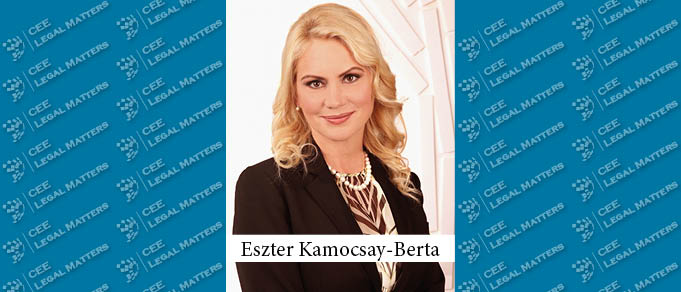The European Court of Justice (ECJ) confirmed once again that VAT deduction is fundamental part of the VAT mechanism and thus can only be narrowly restricted or limited.
Taxi, Please! Has the Competition Board Chosen its Legislative Side Regarding the Liability of Facilitators?
Cartel facilitators are viewed as possible instruments for undertakings to disguise their restrictive agreements and to get around competition law obligations. The approach that enables third parties to be held liable as “cartel facilitators” under the EU competition law dates back to the 1980s, when the European Commission (“Commission”) decided for the first time in Italian Cast Glass that the third party, which was not active in the affected market but enabled and assisted the implementation of the restrictive behavior, was jointly liable for the cartel.
Tax Reductions from 1 January 2022
Mihály Varga, Minister of Finance of Hungary has introduced many changes in tax legislation as of 1 January 2022 with an estimated HUF 750 billion to be left at the private sector. According to the statement of the Minister, tax reductions became achievable, as the economic growth of Hungary rose over 6,1%.
For Foreign Investors: Peculiarities of Share Transfers in Ukraine
As a rule, transactions with securities, including shares in joint stock companies, require the engagement of an investment firm, in particular a securities broker. At the same time, the Law of Ukraine “On Capital Markets and Organised Commodity Markets”, which entered into force on 1 July 2021, provides for several exceptions to this rule. Indeed, an investment firm engagement is not required for the transactions made outside of Ukraine.
Employee Training: Working Time or Rest Period?
Employers must ensure that the period during which an employee attends vocational training required by the employer is regarded as working time. Although the period allocated to such training does not meet all the conditions under European labour law for "working time", a recent decision of the Court of Justice of the European Union ("CJEU") provides a number of important clarifications in this respect. It is advisable for employers to pay attention to the developments introduced by this decision, which is expected to bring about a change in the practice of national courts.
The Applicable Labour Law for Employees of a Hungarian Employer While Working Abroad
A Hungarian company in the field of the construction industry is constantly posting workers to different member states of the European Union. According to the labour agreement of employer and employees the applicable law is Hungarian, however, the mandatory health and safety provisions of the place of work based on the Directive 96/71/EC of the European Parliament and of the Council of 16 December 1996 concerning the posting of workers in the framework of the provision of services – if these have a stronger protection - must be applied.
Turkey: 2021 FCPA Enforcement Actions and Highlights
So far, 2021 has seen less activity in terms of enforcement actions under the Foreign Corrupt Practices Act ("FCPA"), compared to 2020. In 2021, the United States Department of Justice ("DOJ") took a total of 19 enforcement actions, and the Securities and Exchange Commission ("SEC") took a total of 4 enforcement actions. Therefore we observe that the DOJ has been a lot more active than the SEC in terms of the number of enforcement actions this year.
Amendments Introduced in the Bankruptcy and Enforcement Code and Other Laws of Turkey as of November 30, 2021
The Code on Amending the Bankruptcy and Enforcement Code and Some Other Laws ["Amendment Law"] No. 7343 was adopted on November 24, 2021 and entered into force after being published in the Official Gazette No. 31675 on November 30, 2021. In this article, we will explain the critical changes brought by the Amendment Law.
Romanian Customs Authority
Starting with December 10, 2021, the customs activity currently under the auspices of the National Tax Administration Agency (“ANAF”) will be developed by the Romanian Customs Authority, founded by way of Law no. 268 of November 10, 2021, on the establishment of the Romanian Customs Authority and for the amendment of certain normative acts (“Law no. 268/2021”).
Croatia to Start Renewables Auctions for Large-scale Projects in Spring 2022
Last week two key regulatory changes took place that will have important implications for future development of the Croatian renewable energy market.
Whistleblower Protection Act Will Soon be Implemented in Poland
According to the information on the website of the Polish government, in the Ministry of Family and Social Policy, works on the bill which is supposed to implement Directive (EU) 2019/1937 of the European Parliament and of the Council of 23 October 2019 on the protection of persons who report breaches of Union law are in progress. According to the provisions of the directive, Poland is supposed to implement the whistleblower protection regulations into its legal system by 17 December 2021.
Austria: Jingle Bells, Jingle Bells - Anti-corruption Laws for Christmas
In case you are wondering whether you are allowed to send that bottle of wine to your favourite client or donate to a charity, read below.
Six New Specialized Courts Will Be Established in Turkey
The Council of Judges and Prosecutors ["CJP"] of Turkey resolved on establishment of six new specialized courts through its decision dated November 21, 2021, published in the Official Gazette on November 30, 2021. The CJP also published an announcement on its website.
Data Confidentiality in the Management of a Case File
The writs of summons and all proceedings handled by the courts of law are recorded in an online system. The case file number, the names of the parties, the object of the file and other information are published on the Ministry of Justice’s online portal www.portal.just.ro and are also disseminated through the electronic dossier applications implemented by several courts of law.
Another Amendment to the Company Law
On 19 November 2021 the Parliament of the Republic of Serbia enacted yet another amendment to the Company Law. This is the seventh change of this piece of legislation in its 10 year long legal life. We focus here on the two which may have far-reaching consequences to the landscape of limited liability companies (LLC) in Serbia.
Romania Introduces Deposit-Return System for Beverages Packaging
As of 1 October 2022, Romanian consumers will have to pay a mandatory deposit of RON 0.50 (approx. ten Euro cents) for each bottled beverage they buy. Part of the recently introduced deposit-return system ("DRS"), this amount will be added to the shelf price of the respective beverage and will be distinctly marked on receipts. This legislative novelty has been introduced by Government Decision No. 1074/2021 on the establishment of a deposit-return system on single-use packaging ("GD 1074/2021").
Turkey: Regulation On Sharing Of Secret Information
Regulation on Sharing of Secret Information ("Regulation") issued by the Banking Regulation and Supervision Agency ("BRSA") has been published in the Official Gazette numbered 31501 and dated June 4, 2021 and will enter into force on January 1, 2022. The purpose of the Regulation is to determine the scope, form, procedures and principles regarding the sharing and transfer of bank secret and customer secret information, and the Regulation introduces detailed regulations regarding the confidentiality obligation. In this regard, we will focus on the new regulations introduced by the Regulation.
The Latest Amendments to the Serbian Companies Act
On 17 November 2021, the National Assembly of the Republic of Serbia adopted the amendments to the Companies Act (“Official Gazette of the RS”, No. 109/2021) (the „Act“) which entered into force on 27 November 2021.











































